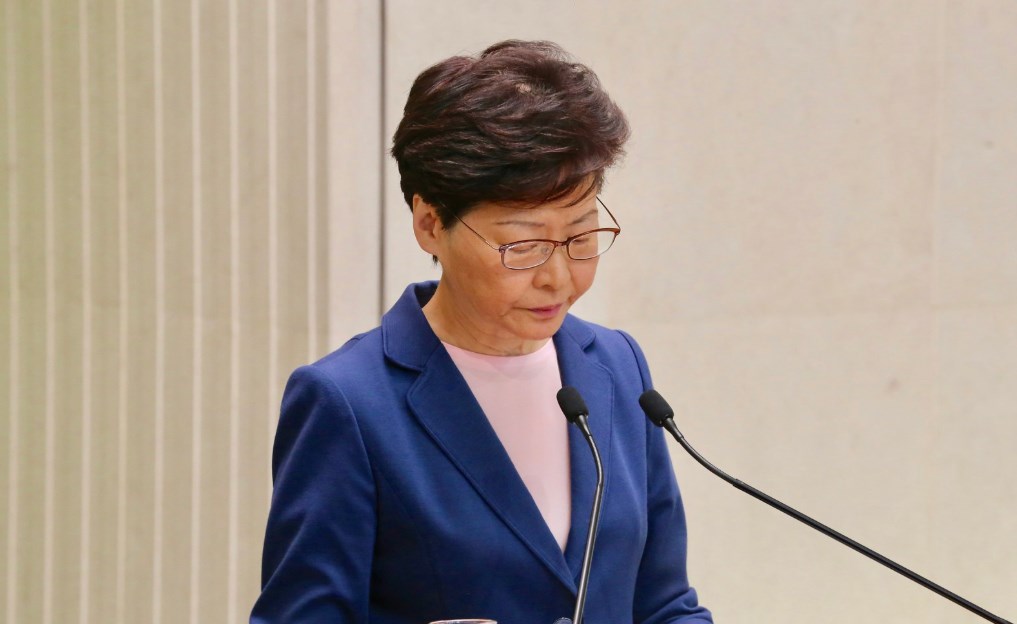By Timothy Lee
Last Sunday, hundreds of thousands of Hong Kong citizens took part in the fourth march within a month against the proposed law that would allow citizens and visitors in Hong Kong to be extradited to mainland China as well as other authoritarian states.
But why are Hongkongers still taking to the streets after Carrie Lam, the Chief Executive, announced that the extradition bill was ‘dead’?

Simple. The strong opposition against the bill represents a general distrust of the pro-Beijing regime in Hong Kong, which has not agreed to withdraw the bill formally. The government has also rejected the protesters’ demands for the exoneration of arrested activists, an independent inquiry into police brutality, and democratic political reform.
The Chief Executive described the bill as ‘dead’ in an attempt to cool the angry city down ahead of protests planned for coming weeks. As expected, it did not work. The next march, in Sha Tin, will take place on Sunday.
Under the parliamentary rules of the Legislative Council, the bill has not really ‘died’. In the English-speaking world, when we say a bill has ‘died’, it means there can be no future proceedings on the same bill. For example, in the US House of Representatives, a bill ‘dies’ if it is voted down by the relevant committee or on the House floor, or if the House decides not to refer the bill to any committee after its first reading.

Back in the Legislative Council of Hong Kong, most of the bills are introduced by government officials, while the lawmakers have limited legislative competence as they are barred from proposing any law that incurs public spending or affects government policy, unless approved by the Chief Executive.
While the pro-Beijing camp dominates the council, thanks to the functional constituencies, a bill introduced by the government may still ‘die’ — if the second or third reading of the bill is voted down, or the term of the council ends before the bill is passed, or it is formally withdrawn.
However, none of these things have ever happened to the extradition bill. John Lee, the Secretary for Security, has merely retracted the request for the Legislative Council to resume the second reading. The second reading could resume; Mr Lee just has to give 12 clear days notice. So the extradition bill’s death is fake — it is pretty much alive.

The protests against the extradition bill have evolved into a decentralised, full-scale political movement across the city, in which the people of Hong Kong fight for the complete withdrawal of the bill and democratic political reform. For this cause, we have paid a tragically high price.
So far at least four young people have taken their own lives and a 73-year-old man has been on hunger strike for over 180 hours. Yet Lam’s government has refused to respond to any of our demands, not even the formal withdrawal of the unpopular extradition bill.
To the people of the Free World the people of Hong Kong now appeal for solidarity. Talk or write to politicians and government officials in your home country. Persuade them to take a stronger stand against the Chinese suppression in Hong Kong. The bill is not dead, but we will not back down until we achieve our goal.
Timothy Lee is a community officer in To Kwa Wan South and a former Hong Kong Federation of Students Secretary-general.
If you are experiencing negative feelings, please call: The Samaritans 2896 0000 (24-hour, multilingual), Suicide Prevention Centre 2382 0000 or the Social Welfare Department 2343 2255. The Hong Kong Society of Counselling and Psychology provides a WhatsApp hotline in English and Chinese: 6218 1084. See also: HKFP’s comprehensive guide to mental health services in Hong Kong
